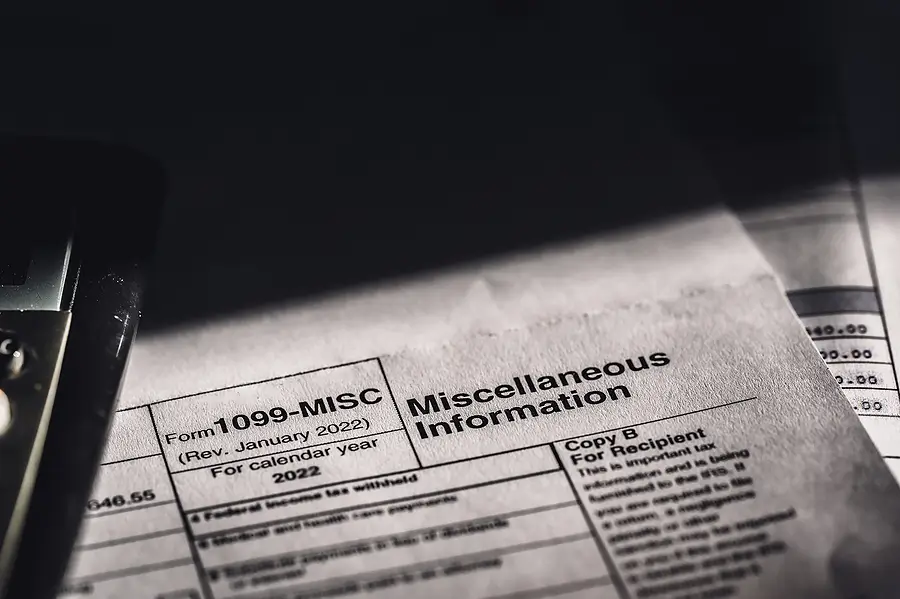Tax season can feel overwhelming for landlords and property owners, especially when it comes to filing the right tax forms. At Blue Ribbon Property Management, we specialize in helping landlords and property managers navigate these challenges. This College Station Property Management Tax Guide is your roadmap for filing 1099s for landlords, ensuring compliance with IRS requirements while maximizing your allowable tax deductions.
The IRS requires landlords and property managers to report payments made during the tax year using specific 1099 forms. These forms help document income earned, such as rental income, and ensure that taxable income is reported accurately. Whether you’re reporting rental payments, tenant-paid owner expenses, or lease cancellation payments, filing the appropriate form is critical.
Please file these forms properly to avoid audits, fines, or other complications. Understanding the importance of filing these forms protects you legally and keeps your business financially organized.
Common 1099 Forms for Landlords
There are several 1099 forms landlords and property managers may need to file. Understanding the purpose of each form can help you avoid confusion and ensure accuracy:
- Form 1099-NEC: For reporting non-employee compensation, such as payments to independent contractors for maintenance costs, landscaping fees, or other services rendered.
- Form 1099-MISC: Used to report miscellaneous income like pet fees, parking fees, or security deposits applied to damages.
- Form 1099-K: For payments processed through third-party payment networks, like online payment platforms or electronic payment processors.
Knowing which form to use is vital for proper compliance. Each form serves a specific purpose, and filing errors could result in penalties or delays.
Rental Income and Other Income Payments
Reporting rental income accurately is one of the most important aspects of tax time. Rental income taxes apply to all income received during the tax year, whether through traditional methods or online payment apps. This includes rental payments, extra fees like pet fees, and tenant-paid owner expenses. Also, your reported income should include lease cancellation payments and money transfers.
Using property management software can simplify the process by providing a centralized platform for tracking rental income. These tools ensure that all payments—whether through cash, check, or digital platforms—are accurately recorded.
Allowable Tax Deductions for Landlords
Taxable income can be reduced by claiming allowable tax deductions. These deductions help lower your current income tax rate and may result in a tax refund. Maximizing these deductions is key to improving your bottom line.
Common Deductions Include:
- Mortgage interest on your rental property
- Maintenance costs and landscaping fees
- Fees paid to property management companies
- Office space expenses for managing your rental business
- Costs associated with landlord software or property management platforms
Keeping organized records of these expenses is essential. A tax professional can offer personalized tax advice to identify additional deductions for your rental business. Accurately tracking these expenses using property management software ensures you don’t miss out on valuable deductions.
Who Needs a 1099 Form?
If you paid $600 or more to an unincorporated independent contractor for services rendered, the IRS requires you to file Form 1099-NEC. Payments for services like maintenance costs, attorney fees, or health care payments fall under this category. Always verify the recipient’s eligibility by collecting a completed W-9 form before issuing payment.
Filing Deadlines
- January 31: Provide 1099 forms to recipients by this date.
- February 28: File paper forms with the IRS by this date.
- March 31: File electronic forms with the IRS by this date.
How to File
Use a payment processor or property management company to help file Form 1099 accurately. Platforms that document income and expenses, like online payment platforms or landlord software, simplify this process. These tools also minimize errors by automating calculations and form submissions.
Avoiding Common Tax Pitfalls
Mistakes during tax time can lead to costly penalties. To ensure accuracy, avoid these common pitfalls:
- Failing to Report All Income: Track all income, including cash payments, rental fees, and payments made through digital platforms.
- Choosing the Wrong Tax Form: Double-check filing requirements to ensure you’re using the correct forms for your situation.
- Overlooking Documentation: Keep detailed records of all transactions, including invoices, receipts, and contracts with vendors.
Tips for Success:
- Use property management software to organize financial data.
- Verify reported income against your records.
- Consult a tax professional or CPA for guidance.
The Role of Property Managers in Tax Compliance
A property management company can play a crucial role in helping you stay compliant during tax season. Property managers handle the complexities of collecting rent, documenting income earned, and filing the necessary tax forms.
At Blue Ribbon Property Management, Our Services Include:
- Collecting rent payments and processing fees paid through third-party payment networks
- Maintaining records of income earned and expenses
- Filing 1099 forms to ensure compliance with IRS regulations
- Offering tax advice to help you maximize allowable deductions
By partnering with an experienced property manager, you can focus on growing your rental business while avoiding the stress of tax season.
Leveraging Property Management Software for Tax Season
Modern property management software platforms streamline tax reporting by tracking rent payments, expenses, and income payments. These platforms help landlords report rental income, file Form 1099-MISC, and ensure compliance with the IRS’s filing requirements.
Using software also addresses unreported income earned by keeping records of transactions, such as debit card transactions or accepted credit card payments. By leveraging technology, landlords and property owners can avoid the pitfalls of traditional methods and accurately report their taxable income. Automation also reduces the risk of human error, saving time and resources during tax season.
Maximize Your Tax Savings with Blue Ribbon Property Management
Tax time doesn’t have to be stressful. With the right tools, tax advice, and support, you can confidently navigate rental income taxes and file 1099s for landlords. Our College Station Property Management Tax Guide simplifies the process, helping you accurately report rental income and claim allowable deductions.
At Blue Ribbon Property Management, we’re committed to providing comprehensive support to landlords and property managers. Whether you need assistance with filing requirements, identifying deductions, or managing your rental property, we’re here to help.
Partner with Us
Ready to take the stress out of tax season? Partner with us to simplify your tax reporting process. Explore our Services to learn how we can help you easily manage your rental business and file Form 1099s. Need personalized assistance? Visit our Contact Us page to get started today! With our expertise, you can focus on growing your investment while we handle the complexities of tax compliance.




